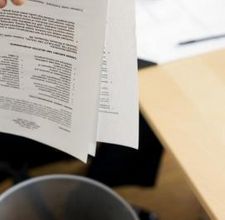Agriculture resume is required for applying to jobs in agriculture sector. There are many firms which do industrialized farming, or individual land owners who own vast starches of land. They required skilled manpower to work in their fields and help grow agricultural products.
The jobs in agriculture sector have vast scopes ranging from on field farming works to off filed jobs like packaging, transportation, animal rearing, etc. Agriculture is no more limited to vegetation cultivation and has taken the face of an industrialized sector. For applying to various jobs in agriculture sector, an influential agriculture resume is a must. Agriculture is still the back bone of many developing and developed nations, and there is huge demand of skilled workforce across all segments. Thus, a well drafted agriculture resume can help you to win the job opportunity.
Depending upon type of job you are looking for in the agriculture sector, you can select an appropriate job best suiting to your preferences and professional aptitude. The different job openings in the agriculture for aspirants to apply for are given below. Note that, the list is only illustrative and not exhaustive as there can be many more different jobs depending upon the segment and individual firms.
Sectors in agriculture
- Business
- Education
- Finance
- Husbandry
- Farm management
- Food technology
- Forestry
- Soil science
- Research and development
- Agriculture technology (machines and other tools)
Jobs in agriculture sector
- Farm manager
- Agriculture research scientist, associates etc
- Agriculture horticulture specialist
- Foot technologist
- Soil scientist
- Farm worker
- Animal breeder
- Agriculture instructor
- And many more.
Depending upon the sector, you can select appropriate agriculture job.
So, if you are looking for agriculture resume examples for drafting an inciting resume, it is always recommended to refer to specific types of agriculture resumes such farm manager resume, soil scientist resume etc. It is also recommended that while drafting the specific agriculture resume, you adhere to the job description given by the employers so as to identify their requirements and expectations. This would help you to target the specific requirements with your skill-sets best suited for the same, and thus enhance the overall selection chances. For finalizing the format and content of the agriculture resume, you can refer to the different example resumes for the specific category of the job to find relevant information.
Ensure that while drafting the agriculture resume, you adhere to prevailing trends in the specific agriculture sector and design your resume suitably. All this will ensure that your agriculture resume is able to grab employer’s attention and win you the job opportunity. To give your application a comprehensive look, you can send the resume along with the agriculture resume cover letter which can provide an appropriate introduction of your resume and convey your message in a professional way. Resume cover letter examples would be great source of finding the relevant and useful information for drafting an equally impressive cover letter for the agriculture resume.
All the information given above, will be able helpful in finding appropriate job in the agriculture sector, and draft professional agriculture resume for applying to the same.





